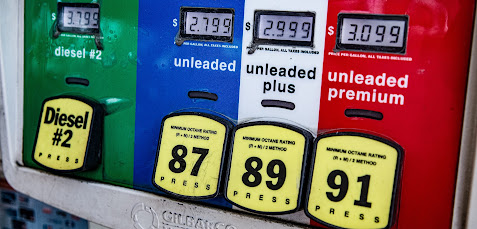|
Three reasons why this was a good day for the planet This bad day for the oil and gas corporations gives hope for a better future.
Let me start with a high school memory of the early 1980s, where we had to grow fruit flies in a bottle. Each time we had biology class, I watched the population increase. They seemed to have had a pretty good life; enjoying their food and reproduction were their main activities. They were the masters of their little universe, without predators or other threats. Until their last round of multiplying their numbers was a bridge too far. Not one survived the destruction of their little glass-bottled paradise after a final day of fierce competition for the last resources. Each of those fruit flies was worried about the future of life in their bottle, and they likely all agreed that another fruit fly should start to change its lifestyle. A bottle has no judge nor any form of responsible leadership.
Shell Today, at about a 15-minute drive from that high school, a Dutch court ordered Royal Dutch Shell to cut its carbon emissions by a net 45% by 2030 compared to 2019 levels. The judge ruled that the current reduction plans of the Anglo-Dutch energy multinational were not enough and that Shell has a duty of care to reduce emissions. The corporation should bring its emission reductions, suppliers, and buyers into line with the Paris climate agreement. The judge said Shell must "at once" reduce its CO2 output and that the ruling would have "far-reaching consequences" for the company and may "curb the potential growth of the Shell group." She added that "The interest served with the reduction obligation outweighs the Shell group's commercial interests."
Today was a good day for the planet. Climate activism won, and this decision will likely set a precedent for similar cases against other fossil fuel companies. Today's decision brings back memories of two years ago when the Dutch Supreme Court upheld a 2015 decision that required the government to cut back greenhouse gas emissions by at least 25 percent by the end of 2020 from 1990 levels. It was a source of inspiration for activists that started similar cases in other countries. But these cases were against governments, while this is the first case won against a multinational.
ExxonMobil There was more good news for the planet today. Shell competitor ExxonMobil had other worries on its mind. Dissident hedge fund activists successfully staged a coup against its board. They replaced two Exxon board members with their candidates to push towards a greener strategy for the oil and gas multinational. Chevron And the good news for the planet continued. At about the same time, a majority of 61 percent of Chevron shareholders voted in favor of a proposal from the campaign group Follow This. It forces the multinational energy corporation to cut its carbon emissions, including those caused by its customers burning its products. The Dutch seem to be everywhere in these developments; Follow This is also a Dutch campaign, led by its founder Mark van Baal.
Was this just a lucky day for the planet? No, what we see are the first signs of a structural change. Increasingly, shareholders are frustrated by the lack of innovative action and demand leadership committed and capable of delivering a much faster track towards a green energy transformation. Some of them support the activists that can campaign and mobilize but can't create change by their numbers. Engine No.1, which initiated the campaign at ExxonMobil, owns just 0.02 percent of the shares but received the support of BlackRock, the world's biggest asset manager, which holds a 6.7% stake in Exxon. There is more good news in 2021 There are more signs that this is a year of change. I could write pages full of bad news, like the profoundly worrying predicted steep increase in greenhouse gas emissions. Still, there are signs that climate action finally becomes much more mainstream and that fundamental transformation occurs. That is, for my taste, still too late and not fast enough, but I realize that we will never get this problem solved if we don't start with good initiatives, and today's developments fit in a bigger picture of hope. The U.S., the second-largest emitter of greenhouse gasses worldwide (and historically and per capita the biggest), has radically changed its course from climate denier to an active player towards more climate action. This year in November, the all-important COP26 in Glasgow should increase ambitions worldwide towards reducing emissions and other forms of climate action. Last week, the International Energy Agency declared that we should end investments in new coal mines, oil and gas wells to meet the 2050 climate goals. This message comes doesn't come from some friendly tree-huggers but the IEA. That is the most authoritative energy body in the world and for many years an organization with a reputation of being close to the fossil fuel industry. A recent article in Bloomberg Green showed that green bonds and loans from the global banking sector exceed the value of fossil financing so far this year. That is an unprecedented reversal since the Paris Agreement of 2015. Add to this the IEA analysis stating that 90 percent of the newly built power capacity worldwide comes from renewable energy. |
 Photo: Nitin Sharma
Photo: Nitin Sharma Photo: Ekatarina Belinskaya
Photo: Ekatarina Belinskaya